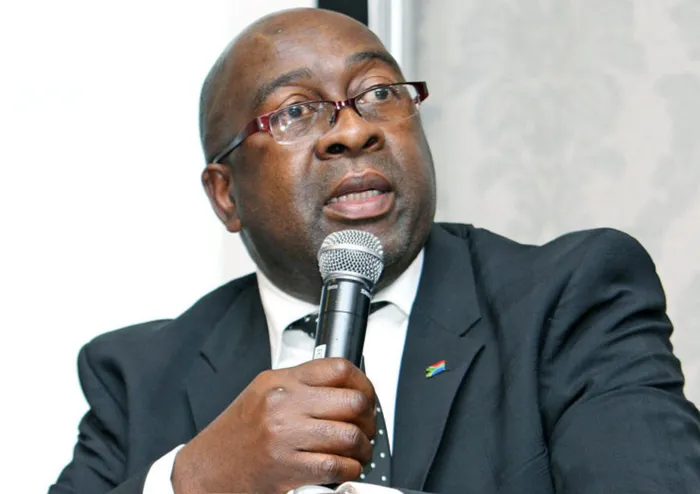Budget poses a balancing act

SA's minister of finance, Nhlanhla Nene. Picture: Simphiwe Mbokazi SA's minister of finance, Nhlanhla Nene. Picture: Simphiwe Mbokazi
With some parliamentary committees leaving it to the last minute to adopt their budgetary review and recommendations reports – part of Parliament’s statutory Budget oversight – the focus on Wednesday falls on Finance Minister Nhlanhla Nene’s medium-term budget policy statement (MTBPS).
Just hours before Nene takes the podium in the National Assembly, at least three parliamentary committees meet to adopt their reports – due according to the Money Bills Amendment Procedure and Related Matters Act in the period after the Budget is adopted, usually by early June, and before the MTBPS takes place in late October.
After Parliament allocated two extra weeks to oversight visits and constituency time, the pressure was on MPs to wrap up their budgetary review and recommendation reports (BRRR). Among those running up against the deadline are the committees of basic education, small business development, and science and technology, according to Parliament’s schedule of committee meetings. At least 14 other committees will consider adopting their BRRR tomorrow, on the eve of the MTBPS.
The MTBPS, colloquially dubbed the mini-budget, reviews and adjusts government’s spending and income for the current financial year. It also signals spending priorities for the next three years. The Budget that follows in February sets in stone the expenditure for the following 12 months.
But Nene faces a torrid juggling act on Wednesday. “We expect a vision of serene calm on the surface, but furious paddling below,” said Nomura economist Peter Attard Montalto.
Consumer confidence is low as is business confidence, which is falling due to lower retail sales, according to the indexes regularly measuring these levels. Although it has not happened for more than two months, load shedding has extracted a heavy financial toll estimated at between R8 billion and R11 billion a month by the Department of Planning, Monitoring and Evaluation. With many parts of South Africa on the verge of drought, the price of many food stuffs is set to go up even more.
This comes against the background of slashed economic forecasts. The South African Reserve Bank recently re-evaluated the growth rate to 1.5 percent, and the World Bank followed suit.
This is below the anticipated 2percent growth for 2015 outlined in February’s Budget, and below the 5 percent growth required by the National Development Plan, South Africa’s blue print to reduce poverty and inequality by 2030.
Meanwhile, the South African Revenue Service set itself a target of collecting R1 trillion from taxpayers, up from the R986.4 billion it collected in the 2014/15 financial year.
An update on tax collection rates, and looming tax reforms which featured in the past two Budgets, could be given by Nene on Wednesday as he outlines readjustments in government spending until February’s Budget.
Nene may also make an announcement how South Africa would fund its contribution to the newly established New Development Bank, a Brics initiative by the association of Brazil, Russia, India, China and South Africa.
In response to a parliamentary question, Nene did not give much away: “The matter is part of the budget process and consideration, if any, will be part of the MTBPS…”
With South Africa’s controversial nuclear build programme officially repeatedly touted as the way to go, Nene may make some some comment on this. February’s Budget was silent on how nuclear energy expansion would be funded, but since then it has emerged the National Treasury has conducted several studies.
While the ANC national general council earlier this month decided financing could not stand in the way of the full and fast-tracked implementation of the national health insurance scheme, or the provision of universal access to quality medial care, that political decision may have come too late for any announcements in the MTBPS.
CAPE ARGUS